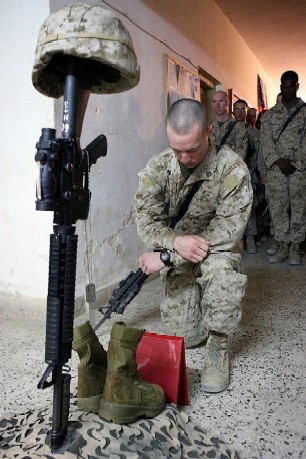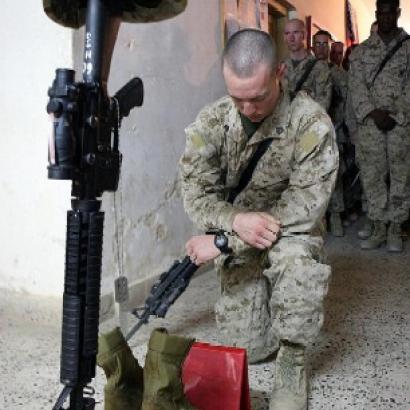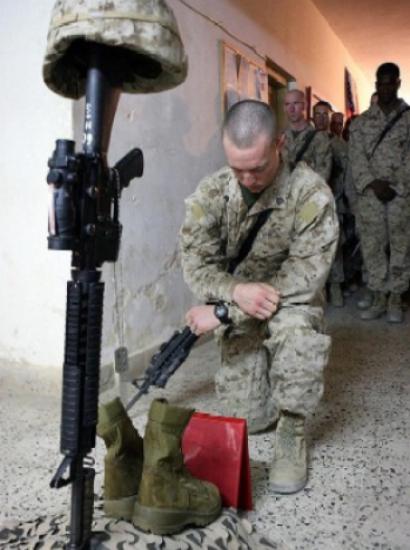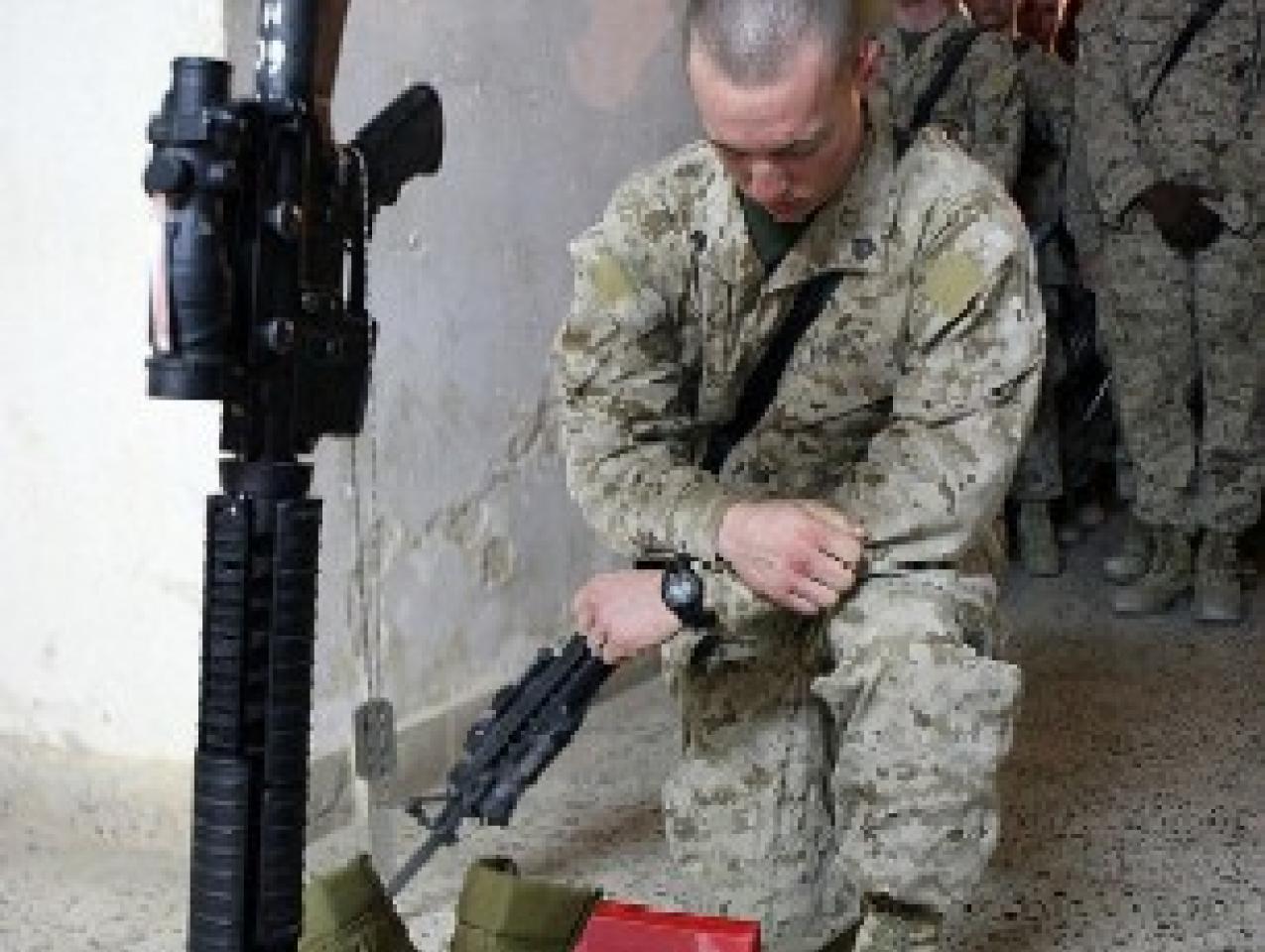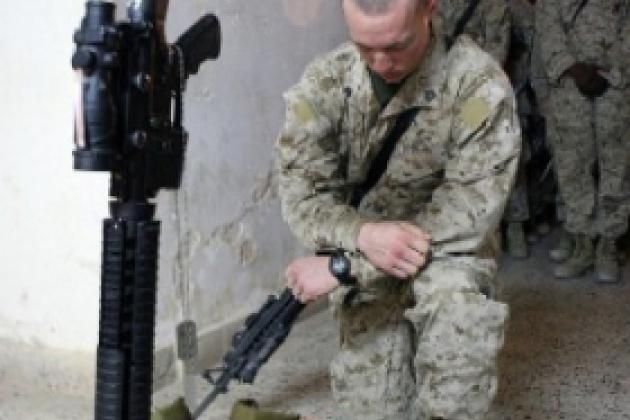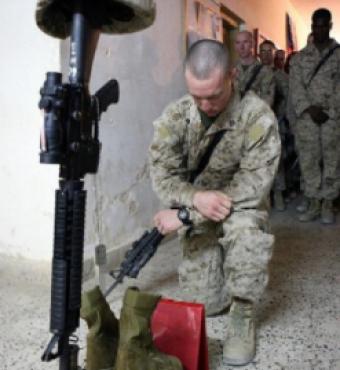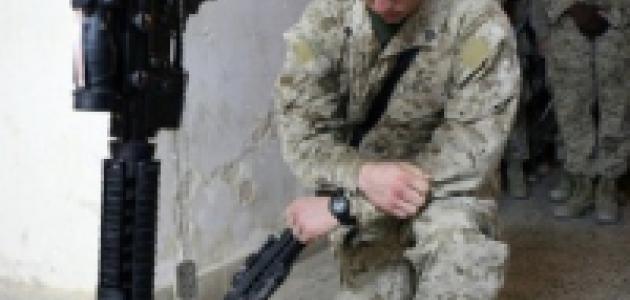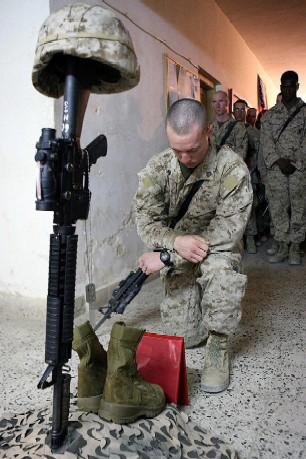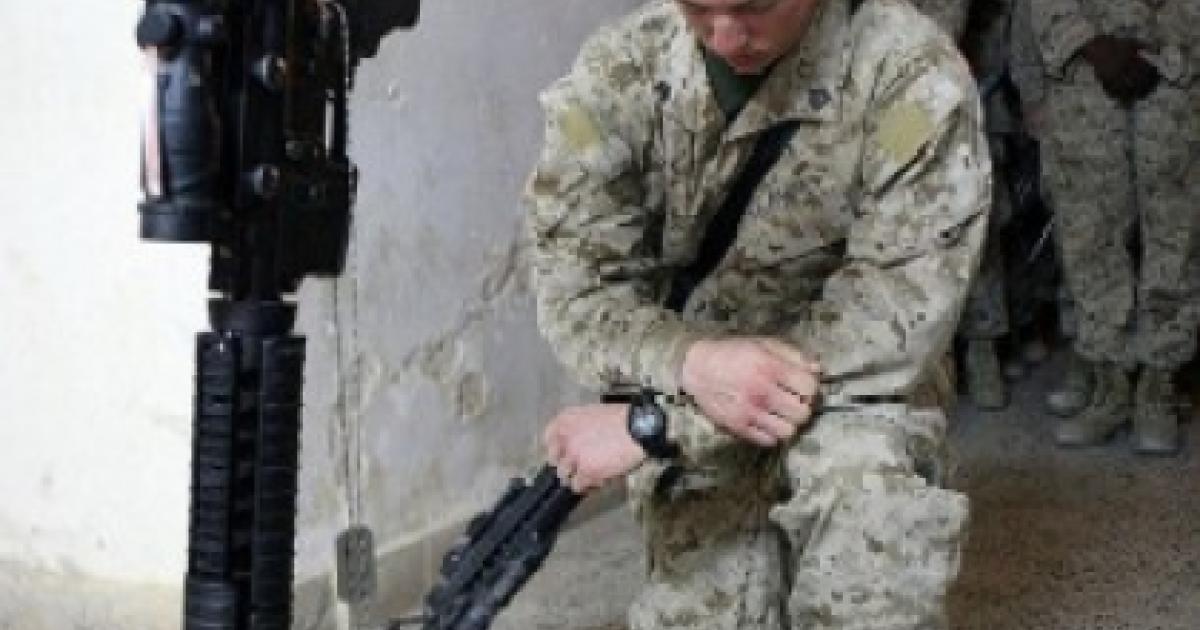- Security & Defense
- US Defense
If I could sum up the new orthodoxy about Iraq, it might run something like this: “I supported the overthrow of the odious Saddam Hussein. But then the poor postwar planning, the unanticipated sectarian strife and insurrection, the mounting American losses, the failure to find weapons of mass destruction—all that and more lost my support. Iraq may or may not work out, but I can see now it clearly wasn’t worth the American effort.”
Aside from the old rehash over disbanding the Iraqi army or tardiness in forming a government, three observations can be made about this “readjustment” in belief. First, the nature of the lapses after March 2003 is still the subject of legitimate debate; second, our mistakes are no more severe than in most prior wars; and, third, they are not fatal to our cause.
The Fog of War
Consider the most frequently alleged errors: the need for more troops; the need to have restored immediate order; and the need to have had up-armored vehicles and some tactical plan to counter improvised explosive devices.
In none of these cases was the manner of the solution all that clear-cut—especially because on the first day of the war the United States was trying to avoid targeting civilians, avoid infrastructure as much as possible, and wage a supposed war of liberation rather than one of punitive annihilation.
Had we brought in another 200,000 troops to secure Iraq, the vast increases in the size and cost of American support might not have been commensurate with an increased ability to put down the insurrection, which from the beginning was decentralized and deliberately designed to play off large concentrations of patrolling Americans—the more targets the better.
The insurrection broke out not so much because we had 200,000 rather than 400,000 troops in country but because a three-week strike to decapitate the Baathist elite, despite the showy “shock and awe” pyrotechnics, was never intended, World War II–like, to crush the enemy and force terms on a shell-shocked, defeated, and humiliated populace. Many of our challenges, then, are not the war in Iraq per se but the entire paradox of postmodern war in general in a globally televised world.
| Shooting looters may have restored order in Iraq, but it would also have been denounced as an Abu Ghraib-like crime. |
And if the point of Iraq was to stress “Iraqification” and avoid too large an American footprint in the Middle East, then ubiquitous Americans may have posed as many problems as they solved—with two or three Green Zones rather than one. Instead of drawing down to 100,000 troops, we might now be talking of hoping to keep below 300,000.
Past history suggests that military efficacy is a question not so much of the number of troops but of how they are used. Especially large U.S. deployments can foster dependency rather than autonomy on the part of the Iraqi security forces. Each month, fewer Americans are dying in Iraq and more Iraqis are fighting the terrorists—as it becomes clear to them that some enormous occupation force is not on its own going to save the Iraqis’ democracy for them.
The looting should have been stopped. But by the same token, after the statue fell, had the U.S. military begun immediately to shoot looters on sight—and that was what restoring order would have required—or carpet bombed the Syrian and Iranian borders to stop infiltration, the outcry would have arisen that we were too punitive and gunning down poor and hungry people even in peace. I fear that 400,000 peacekeepers, given the rules of postbellum engagement, would have been no more likely to shoot thieves than would 200,000.
We forget that one reason for the speed of the U.S. advance and then the sudden rush to stop military operations—as was true in the first Gulf War—was the enormous criticism leveled at the Americans for going to war in the first place, and the constant litany cited almost immediately of American abuses involving excessive force. Shooting looters may have restored order, but it also would have been enshrined as an Abu Ghraib–like crime—a photo of a poor “hungry” thief broadcast globally as an unarmed victim of American barbarism. We can imagine more “Highway of Death” outrage had we bombed concentrations of Shiites pouring in from Iran or jihadists from Syria going to “weddings” and “festivals” in Iraq.
Throughout this postmodern war, the military has been on the horns of a dilemma: Don’t shoot and you are indicted for being lax and allowing lawlessness to spread; shoot and you are gratuitously slandered as a sort of rogue LAPD in camouflage. We hear only of the deliberately inexact rubric “Iraqi civilian losses”—without any explanation that almost all the Iraqi dead are either (1) victims of the terrorists, (2) Iraqi security forces trying to defend the innocent against the terrorists, or (3) the terrorists themselves.
| History suggests that military efficiency is a question not so much of the number of troops as of how they are used. |
Legitimate questions arise as to whether America’s army is too small or whether the requisite political support for military operations is too predicated on the 24-hour news cycle. But those are issues transcending the war in Iraq. In retrospect, up-armoring Humvees would have been wise from the very outset—as would having something remotely comparable to a Panzerfaust in 1943, more live than dud torpedoes in 1942, or deploying a jet at the beginning of the Korean War that could compete with a Russian MiG-15.
Misplaced Angst
So, again, the proper question is not whether there were tragic errors of judgment in Iraq—but to what degree were they qualitatively different from past errors that are the stuff of war, to what degree were they addressed and corrected, and to what degree did their commission impair the final verdict of the mission?
Instead of this necessary ongoing discussion, we are left with former hawks that clamor ad nauseam for the secretary of defense’s resignation as a symbolic atonement for their own apparently collective lament that the postwar did not turn out like the aftermaths of Panama, Kosovo, Afghanistan, or Gulf War I. All that angst is about as helpful as perpetually damning Turkey for not letting the 4th Infantry Division come down from the north into the Sunni Triangle at the beginning of the war.
It is often said that we had no plan to deal with postwar Iraq. Perhaps. But the problem with such a simplistic exegesis is that books and articles now pour forth weekly from disgruntled former constitutional architects and frustrated legal experts who once rushed in to draft Iraqi laws or from angry educationists and bankers whose ideas about school charters or currency regulations were not fully implemented. Somebody apparently had some sort of plan—or the legions that went into the Green Zone in spring 2003 wouldn’t have been sent there in the first place.
Yes, we had zillions of plans all right—but whether they were sufficient to survive the constant and radically changing cycles of war is another matter, especially in a long-failed state plagued with fundamentalism, tribalism, chaos, insurrection, and Sunni, Shiite, and Baathist militias whose leadership was routed rather than its military crushed. The best postwar plans do not work as they should when losing enemies feel that they won’t be flattened and a successful attacker feels it can’t really flatten them.
| While we worry about our own losses, Al Qaeda must recognize that thousands of its terrorists are dead and that its leadership has been forced into hiding. |
In March 2004 perhaps our initial manner of enacting the “plan”—train the Iraqi security forces, craft a consensual government, and put down the terrorists—was thwarted by our inexperience and naiveté. But today the identical plan seems to be working far better—precisely because, as in all wars, we have adapted, modified, and nuanced our way of fighting and nation-building, as U.S. fatalities decrease and Iraqis step up to fight for their freedom.
Nothing in this war is much different from those of the past. We have fought suicide bombers in the Pacific. Intelligence failures doomed tens of thousands—not 2,500—at the Bulge and Okinawa. We pacified the Philippines through counterinsurgency fighting. Failure to calibrate the extent of Al Zarqawi’s insurrection pales before the Chinese crossing of the Yalu.
Even our current clinical depression is typically American. In July 1864, Lincoln was hated and McClellan and the Copperheads who wished a cessation of war and bisection of country canonized. Truman left office with the nation’s anger that he had failed in Korea. As George Bush Sr. departed, the conventional wisdom was that the budding chaos and redrawing of the map of Eastern Europe would prompt decades of instability as former Communists could not be spoon-fed democracy and capitalism. During Afghanistan by week five we were in a quagmire; the dust storm supposedly threatened our success in Iraq—in the manner that the explosion of the dome at Samarra marked the beginning of a hopeless civil war that “lost” Iraq.
The fact is that we are close to seeing a democratically elected government emerge, backed by an increasingly competent army, pitted against a minority of a minority in Zarqawi’s Wahhabi jihadists.
Keeping Our Nerve
While we worry about our own losses, both human and financial, Al Qaeda knows that thousands of its terrorists are dead, its leadership dismantled or in hiding—and most of the globe turning against it. For all our depression at home, we can still win two wars—the removal of Saddam Hussein and the destruction of the jihadists that followed him—and leave a legitimate government that is the antithesis of both autocracy and theocracy.
| Throughout this postmodern war, the military has been on the hrns of a dilemma: Don't shoot and you are indicted for being lax; shoot and you are slandered as a sort of rogue LAPD in camouflage. |
Syria is out of Lebanon—but only as long as democracy is in Iraq. Libya and Pakistan have come clean about nuclear trafficking—but only as long as the United States is serious about reform in the Middle East.
And the Palestinians are squabbling among themselves, as democracy is proving not so easy to distort after all—a sort of Western Trojan Horse that they are not so sure they should have brought inside their walls. When has Hamas ever acted as if it has a “sort of” charter to “sort of” destroy Israel? We worry that Iran is undermining Iraq. The mullahs are terrified that the democracy across the border may undermine them—as if voting and freedom could trump their beheadings and stonings.
Ever since 9/11 we have been in a long, multifaceted, and much-misunderstood war against jihadists and their autocratic enablers from Manhattan to Kabul, from Baghdad to the Hindu Kush, from London and Madrid to Bali and the Philippines. For now, Iraq has become the nexus of that struggle, in the heart of the ancient caliphate, rather than the front once again in Washington and New York. Whose vision of the future wins depends on who keeps his nerve—or to paraphrase the Duke of Wellington at Waterloo, “Hard pounding, gentlemen; but we will see who can pound the longest.”
The content of this article is only available in the print edition.






